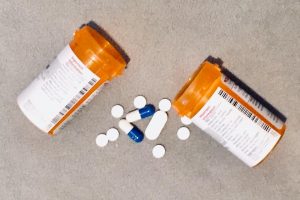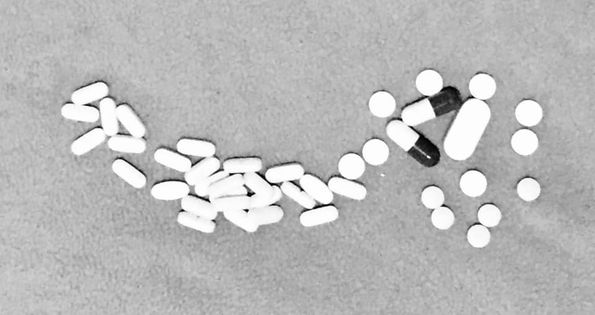Illicit drug dealers are disguising a deadly synthetic opioid in pills.
Like many other states across the U.S., Colorado has a fentanyl problem, and now overdose fatalities are on the rise as this powerful synthetic opioid is being disguised as other drugs. Data from the Denver medical examiner’s office shows the number of people who died of fentanyl overdoses in Denver alone jumped to “119 last year, up from 17 just two years before,” while statewide fentanyl overdoses more than doubled, “rising 111% to 452 deaths last year from 214 in 2019.”
What’s more, the total overdose-related deaths from heroin, cocaine and methamphetamine spiked to “1,223 in 2020, up nearly 20% from 1,062 the year before,” according to state health department data. This increase has been attributed in large part to the coronavirus pandemic, which has kept people isolated and led to increased rates of mental illness.
“Fentanyl is like kerosene. Methamphetamine is like natural gas. Then the COVID pandemic is like, ‘Let’s add some diesel fuel,’” said Dr. Joshua Blum, an addiction medicine doctor at Denver Health. “It’s like one flammable agent added to another.” He added, “Four or five years ago, fentanyl was a street-drug problem relegated to the coasts, and basically nonexistent in Denver. Now, fentanyl made its way to the middle of the country.”

Fentanyl is up to 100 times more potent than morphine and is commonly added to heroin to stretch production. Many illicit providers use pharmaceutical industry machines to press the powder into pills which make it appear to be Xanax, Percocet, or a generic version of oxycodone, which can then be sold on the streets or on the dark web. A 2017 conducted by pharmaceutical company Pfizer in partnership with law enforcement discovered only 5% of the pills purchased on the dark web were actually Xanax. The team found just seven of 138 pills purchased were authentic.
“People accustomed to taking four oxycodone tablets per day are at serious risk of overdose if their next illicit purchase is actually fentanyl shaped to look like oxy,” Blum said. He added that the pandemic has made substance use worse across the board, with alcohol abuse still the biggest problem he is seeing at Denver Health. “About 80% of patients needing substance abuse treatment at Denver Health are suffering from good old-fashioned alcohol abuse,” Blum said.
The rise in fentanyl disguised as other drugs has led to an initiative of distributing tiny test strips at the Harm Reduction Action Center, a needle exchange and overdose prevention center in Denver. Of the 2,161 test strips used in 2020 with the results shared, 42% were positive for fentanyl, according to the center.
However, while the testing shows a need to address the fentanyl concern, and Colorado Attorney General Phil Weiser has publicly supported the Philadelphia nonprofit SafeHouse’s efforts in 2020, this month Weiser’s office announced he doesn’t support funding for a similar site in the state.
“While he is sympathetic to the desire to find new methods to curb overdoses and needless deaths, the data is mixed on the effectiveness of such sites,” Weiser’s spokesperson Lawrence Pacheco said. “As experiments and data gathering on them go forward, we can continue to evaluate the data on the use of safe injection sites.”
Meanwhile, because of its high demand and profitability, disguised fentanyl doesn’t appear to be going anywhere anything soon and the problem continues to worsen.
“The drug comes across the border through Texas and New Mexico and into Colorado,” said Steve Kotecki, public affairs specialist with the Denver field office of the DEA. “Fentanyl has started replacing black tar heroin in Colorado because it’s more powerful and more profitable.”
Sources:
Fentanyl overdoses are surging in Colorado as the powerful opioid is disguised as other drugs
Street drugs containing fentanyl circulating in Boulder, officials say


Join the conversation!